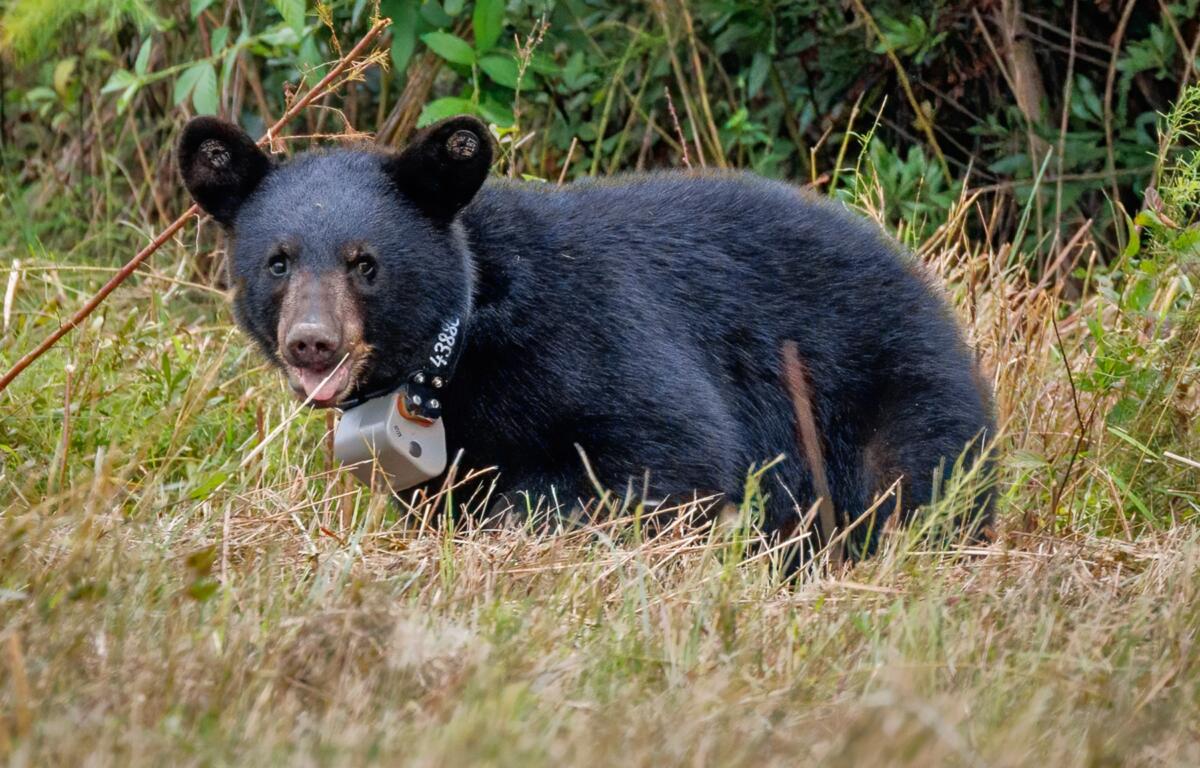ASHEVILLE, N.C. (828newsNOW) — Twelve black bear cubs — four from the coastal region and eight from the mountains — have been returned to the wild through the N.C. Wildlife Resources Commission’s long-running cub rehabilitation program.
The commission has operated its cub rehabilitation program since 1976, one of the first of its kind in the nation. Initially created to help restore North Carolina’s black bear population, the program now focuses on ensuring orphaned cubs can thrive once released back into their natural habitats.
Each year, orphaned cubs arrive between late winter and early summer. They are placed with one of two licensed rehabilitation partners — the North Carolina Zoo or Appalachian Wildlife Refuge — where they receive specialized care and minimal human interaction until they are about seven to eight months old.
Some of the cubs are fitted with tracking collars so biologists can monitor their movements after release. NCWRC reported that five collared cubs released before Tropical Storm Helene in 2024 survived the storm and later found den sites for winter hibernation. The collars are designed to drop off the cubs the following spring.
Biologists typically release cubs in early fall when acorns, berries and other natural foods are abundant. The animals are released at slightly higher body weights to help them adjust to the wild. Research shows that heavier weights and shorter captivity times improve the cubs’ chances of survival.
Releases take place on state-managed lands far from developed areas, and cubs are always returned to the same region where they were originally found.
NCWRC reminds residents that a lone bear cub is rarely orphaned. Mothers often leave cubs temporarily while foraging and will return within hours. Intervening can be dangerous for people and the cubs.
“People who try to capture or handle a cub are not only risking the cub’s safety, but their own if the mother bear is nearby,” NCWRC Black Bear Biologist Jenna Malzahn, said in a news release. “By trying to capture a bear cub, you may cause it to become orphaned, injured or both.”
By late summer, calls to the agency’s Wildlife Helpline about orphaned cubs typically decrease, replaced by reports of bears denning in urban areas. Healthy cubs orphaned later in the year are usually capable of surviving on their own.
Residents can find tips for safely coexisting with bears at BearWise.org and learn more about the state’s cub rehabilitation program on the NCWRC blog and website.


